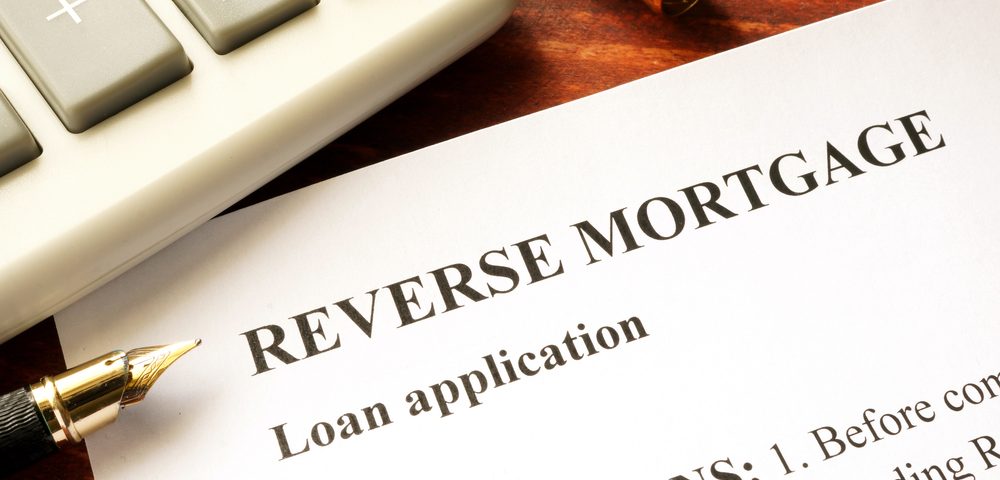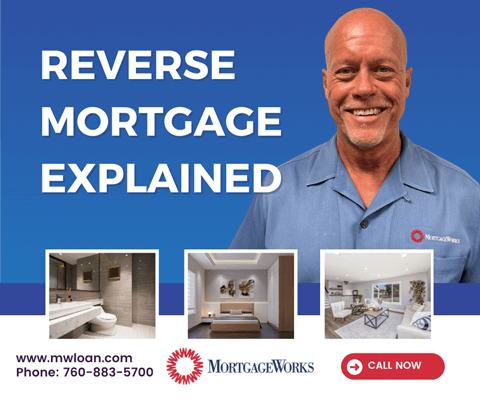Steps to Successfully Purchase Reverse Mortgage for Your Property
Wiki Article
Unlock Financial Liberty: Your Overview to Purchasing a Reverse Mortgage
Understanding the details of reverse home mortgages is crucial for home owners aged 62 and older looking for financial freedom. This distinct monetary tool enables senior citizens to leverage their home equity, transforming it into obtainable cash money for numerous demands, from health care to way of living enhancements. Nevertheless, browsing the qualification requirements, expenses, and advantages can be intricate. As you consider this choice, it is important to comprehend not only exactly how it works yet also the implications it might have on your economic future. What are the crucial aspects you should weigh prior to making such an impactful choice?What Is a Reverse Home Loan?

The fundamental appeal of a reverse home mortgage depends on its potential to improve monetary adaptability throughout retirement. Property owners can use the funds for various purposes, consisting of clinical expenses, home renovations, or daily living prices, thus supplying a security net throughout an essential phase of life.
It is vital to comprehend that while a reverse mortgage enables boosted capital, it also decreases the equity in the home in time. As rate of interest collects on the outstanding funding equilibrium, it is essential for potential consumers to meticulously consider their long-term financial plans. Consulting with a reverse home mortgage or a monetary consultant specialist can offer useful understandings into whether this choice lines up with a person's financial objectives and circumstances.
Qualification Demands
Understanding the eligibility demands for a reverse mortgage is vital for house owners considering this economic option. To qualify, candidates need to go to least 62 years old, as this age standard permits elders to access home equity without month-to-month home mortgage settlements. Furthermore, the home owner should inhabit the house as their primary house, which can include single-family homes, particular condominiums, and manufactured homes satisfying certain guidelines.Equity in the home is an additional crucial requirement; home owners normally need to have a considerable amount of equity, which can be established via an appraisal. The quantity of equity offered will straight affect the reverse home mortgage amount. In addition, applicants should show the ability to preserve the home, consisting of covering real estate tax, home owners insurance policy, and upkeep costs, making sure the residential property stays in excellent problem.
In addition, prospective debtors should undertake a monetary assessment to assess their earnings, credit rating, and total financial circumstance. This assessment assists lending institutions determine the candidate's capability to satisfy continuous responsibilities associated to the residential property. Meeting these demands is essential for safeguarding a reverse home loan and guaranteeing a smooth financial change.
Advantages of Reverse Mortgages
Numerous advantages make reverse mortgages an appealing alternative for senior citizens wanting to boost their monetary versatility. purchase reverse mortgage. One of the key benefits is the capacity to convert home equity right into money without the demand for month-to-month home loan settlements. This attribute enables elders to gain access to funds for various needs, such as clinical costs, home improvements, or daily living expenses, thus relieving financial anxietyAdditionally, reverse home loans offer a safeguard; senior citizens can remain to reside in their homes for as long as they satisfy the loan needs, fostering security throughout retired life. The profits from a reverse home mortgage can also be utilized to postpone Social Protection benefits, potentially causing greater payments later on.
Furthermore, reverse home loans are non-recourse finances, indicating that borrowers will never ever owe greater than the home's value at the time of sale, shielding them and their successors from monetary responsibility. The funds received from a reverse home loan are generally tax-free, including another layer of monetary alleviation. Overall, these advantages position reverse home loans as a useful service for seniors seeking to enhance their financial situation while preserving their treasured home atmosphere.

Expenses and Costs Included
When thinking about a reverse home loan, it's necessary to recognize the different prices and costs that can affect the total economic image. Understanding these costs is critical for making a notified decision regarding whether this monetary item is best for you.Among the main prices related to a reverse home loan is the source charge, which can vary by loan provider but generally ranges from 0.5% to 2% of the home's appraised worth. In addition, homeowners need to prepare for closing home prices, which may include title insurance policy, assessment costs, and credit record costs, typically totaling up to several thousand bucks.
Another significant expense is home loan insurance costs (MIP), which secure the loan provider against losses. This cost is generally 2% of the home's value at closing, with an ongoing yearly premium of 0.5% of the staying funding equilibrium.
Last but not least, it's vital to think about ongoing prices, such as residential or commercial property tax obligations, house owner's insurance coverage, and upkeep, as the borrower remains accountable for these expenses. By thoroughly evaluating these prices and costs, homeowners can much better evaluate the financial implications of going after a reverse mortgage.
Steps to Get Going
Obtaining started with a reverse home loan includes numerous crucial actions that can help enhance the process and guarantee you make informed choices. Analyze your economic scenario and identify if a reverse home loan straightens with your long-term goals. This includes evaluating your home equity, existing financial debts, and the need for extra income.
Next, study various lenders and their offerings. Look for reputable institutions with positive testimonials, clear fee structures, and affordable rate of interest. It's necessary to compare problems and terms to find the very best suitable for your requirements.
After choosing a lending institution, you'll need to finish a comprehensive application process, which usually calls for documentation of income, possessions, and home details. Participate in a therapy session with a HUD-approved therapist, that will click resources certainly supply understandings right into the ramifications and obligations of a reverse home loan.
Conclusion
Finally, reverse home mortgages offer a feasible option for seniors seeking to improve their financial stability during retirement. By converting home equity right into obtainable funds, property owners aged 62 and older can address various monetary needs without the stress of regular monthly repayments. Comprehending the complexities of qualification, benefits, and connected expenses is crucial for making informed choices. Cautious factor to consider and planning can bring about enhanced top quality of life, guaranteeing that retired click this link life years are both secure and satisfying.Understanding the details of reverse mortgages is essential for house owners aged 62 and older seeking monetary freedom.A reverse home mortgage is a financial item made mostly for homeowners aged 62 and older, allowing them to convert a portion of their home equity into money - purchase reverse mortgage. Consulting with a reverse mortgage or a monetary advisor professional can give valuable insights right into whether this choice straightens with a person's financial objectives and circumstances
Moreover, reverse home mortgages are non-recourse financings, indicating that consumers will certainly never owe even more than the home's value at the time of sale, shielding them and their heirs from economic responsibility. Generally, these benefits placement reverse home loans as a useful service for elders seeking to improve their financial circumstance while preserving their cherished home atmosphere.
Report this wiki page